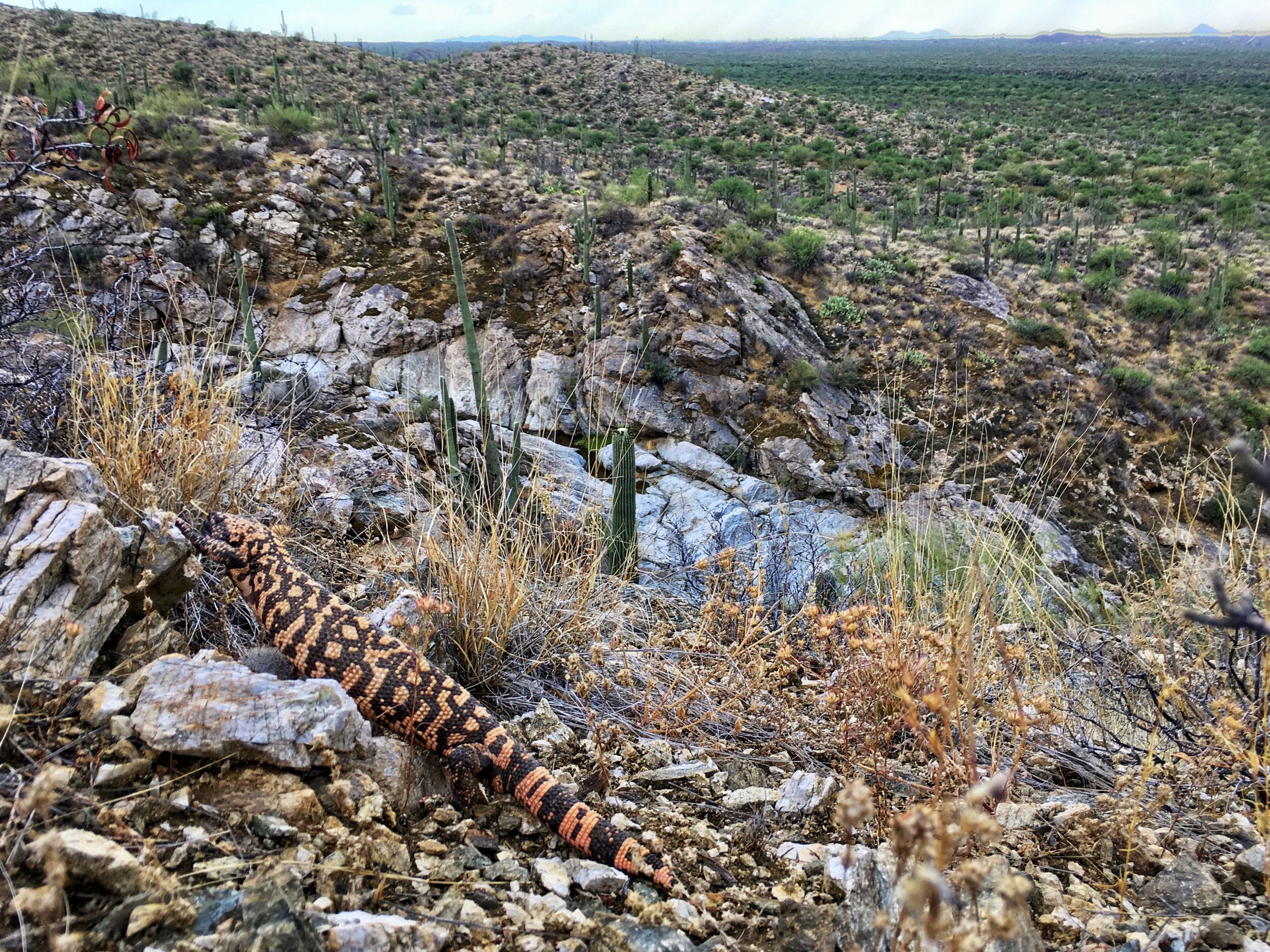Washington Ultrarunner Breaks 800-mile Arizona Trail FKT in 13 days
Canadian Trail Running (April 20, 2021) by Ben Snider-McGrath
Washington state’s Joe McConaughy recently completed a nearly two-week-long run along the Arizona Trail, running close to 1,300 kilometres right through the state from border to border. McConaughy’s final time of 13 days, three hours set the fastest known time (FKT) on the Arizona Trail, beating the previous record by almost three days. This is the fifth FKT of McConaughy’s ultrarunning career, adding to even longer route records that he has run on the Pacific Crest and Appalachian trails in the U.S.
Starting in the south at the Arizona-Mexico border, McConaughy travelled north with a crew of seven people, passing nearby Tucson and Phoenix and eventually into the Grand Canyon before finally reaching Arizona’s border with Utah 13 days after he began his journey. The run tested McConaughy constantly with its ever-changing weather. One day he was in the sunny and hot desert, but the next, he was working his way up a mountain and battling through the snow and cold. In his first two days on the trail, he ran in the sun, heavy rain, hail and snow, which was truly representative of what he would have to endure for the rest of the trip.
McConaughy had very clear goals for this run, and as he noted in his post-record blog report, simply beating the FKT was not what he set out to do. Instead, he wanted to crush the previous route record, which had stood at 15 days, 22 hours since 2016. His A Goal was to run 11 and a half days or quicker, his B Goal was to run sub-12 days and his C Goal was to go sub-13. He ended up missing out on that third goal, but only by a few hours.
It’s easy to look back at a run and make excuses, but snow definitely slowed McConaughy down in the latter stages of his run, and it’s fair to assume that he would have easily broken the 13-day mark had the trail been in even slightly better condition. As he wrote in his report, he trudged through knee-deep snow for eight or nine miles on Day 10 after passing the Grand Canyon. Two days later, he and his crew ran into another miles-long stretch of deep snow. He had no other options, so he powered forward. Snowshoes didn’t even help, and after 12 days of running, McConaughy decided he had had enough. He told his crew that he was done.
The next morning, though, his crew persuaded him to give it one more shot. He wasn’t optimistic, but he relented, and he was thrilled to find that the trail was a bit better, and although there was still plenty of snow, he could move much quicker than the days before. Joined by two of his crew members, McConaughy set off once again.
“The miles were slow and miserable, but with three people we were able to have some fun and move more quickly,” he wrote. “We were able to average 35-minute miles over these 20 miles. I could never have done it alone.”
On the final stretch of the trail, McConaughy wrote that he couldn’t believe that he had made it. “I’m so glad I didn’t quit. I’m so glad I didn’t quit,” echoed in his head as he ran the last few miles of the 800-mile journey. In most cases, a race win or an FKT is due in large part to a runner’s team, and that is certainly the case with McConaughy’s run. His crew not only provided support throughout the two-week adventure, but they convinced him to give it one last shot when he was dead set on quitting. While it’s his name now listed at the top of the Arizona Trail FKT leaderboard, McConaughy thanked his crew and rightly said it was a group effort, and that he couldn’t have done it without them.
To read the article online, click here.












